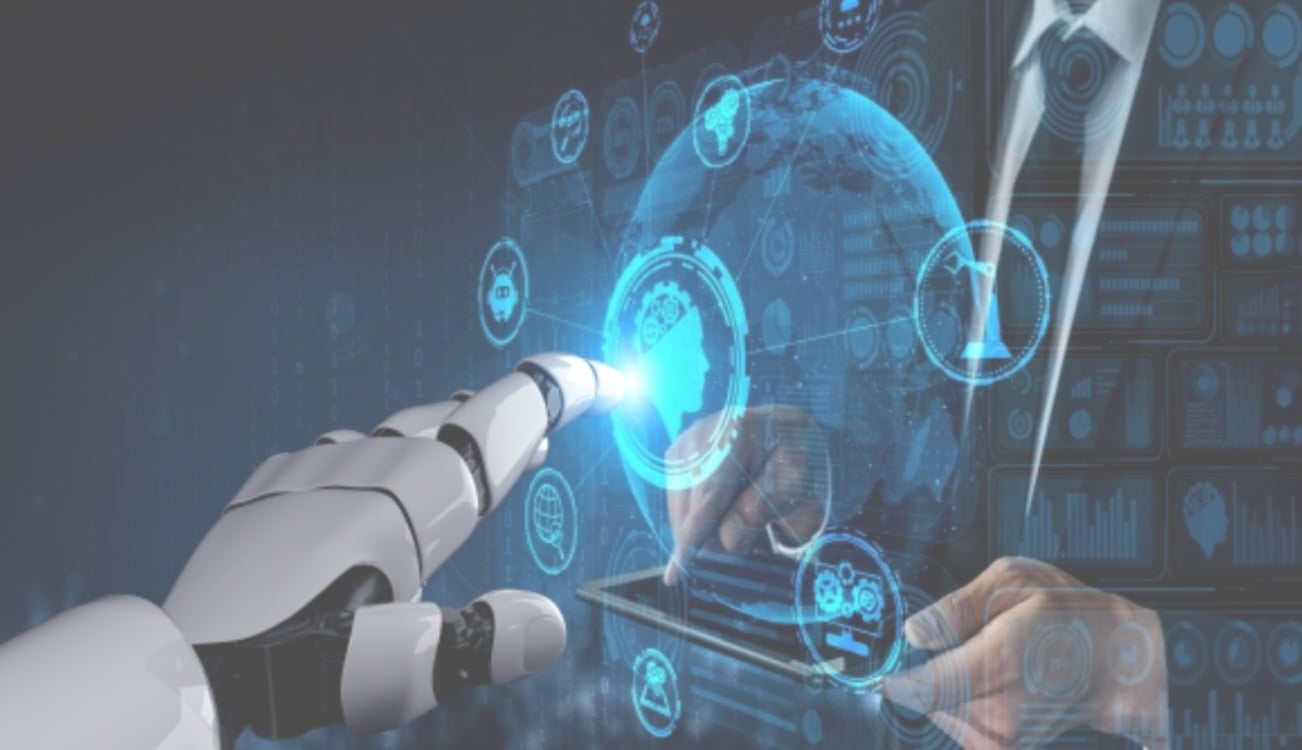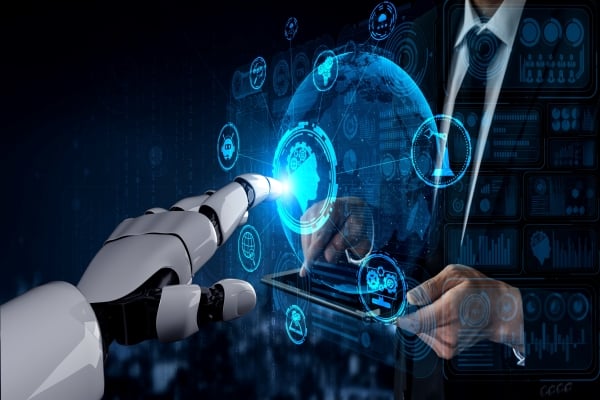
Emerging technologies are always exciting, and that's especially true for artificial intelligence (AI). In AI, it seems as if there's a new development every day, with the potential to revolutionize nearly every industry. Research suggests that AI will add $15.7 trillion to the global economy by 2030, and it's no wonder businesses are clamoring to adopt AI solutions.
Without a doubt, artificial intelligence has been very helpful, especially in everyday business operations. AI technologies are now at the forefront of every business news article, with many business processes being made easier because of AI technology. Artificial intelligence software raises the competitive advantage between them and human workers, with some companies delegating tasks to AI and replacing human capabilities with artificial intelligence.
There are a lot of benefits of AI technologies that frequently make headlines in the business world, from the wonders of machine learning to how natural language processing can be helpful in AI tools to improve customer experience in the future. Indeed, there is hope in artificial intelligence.
We already know that artificial intelligence can make a certain business process more streamlined and systematic than ever, so let's find out how the power of artificial intelligence software tools can benefit business leaders from around the world, from simple business functions to more data analysis, and other key benefits.
How Machine Learning Can Help with Business Processes
For many years, machine learning has been instrumental in helping businesses with various processes. Machine learning algorithms can automatically improve as they’re given more data over time. When it comes to business, this could mean that the machine learning algorithm will be able to identify patterns in customer behavior and then make decisions accordingly about what products or services to offer them.
Another way machine learning can help businesses is by automatically labeling data and then grouping it into clusters. This is especially helpful when businesses want to target a specific market and need to know more about their customers. With the help of machine learning, businesses can understand what their customers are buying and then group them accordingly.
How Natural Language Processing Can Improve Customer Experience
We often hear about how important customer experience is in the business world. And it's true—customers are the lifeblood of any business. This is why many businesses are now turning to artificial intelligence technologies to help them improve customer experience and increase customer satisfaction.
Artificial intelligence can help businesses improve customer experience through natural language processing (NLP). NLP is a form of artificial intelligence that allows machines to understand human language. With NLP, businesses can create chatbots that can help customers with various tasks such as finding out about a product or service, making a purchase, or getting customer support.
Chatbots are very beneficial for businesses because they allow customers to get help without waiting on hold for a long time. They also allow businesses to offer customer support around the clock. In addition, chatbots can help businesses gather important data about their customers, such as their preferences and buying habits.
How Artificial Intelligence Can Help with Data Analysis
Businesses are always looking for ways to make better use of their data. And that's where artificial intelligence comes in. AI technologies can help businesses better understand their data by automatically identifying patterns and trends in the data. This can help businesses make better decisions about their marketing, product development, and even sales strategies.
Using AI can help businesses with data analysis by helping them predict future outcomes. This is done by using machine learning algorithms to analyze data and then identify relationships between different factors. Once the relationships have been identified, the machine learning algorithm can be used to predict future outcomes.
AI can also help businesses identify customer trends. For example, if a business notices that many of their customers are buying a certain type of product, they can then use AI to find out more about that product and figure out ways to improve it or offer it at a lower price.
Artificial Intelligence In Everyday Business Operations
AI systems have a lot to offer to businesses in terms of streamlining various processes such as automating repetitive tasks, minimizing human error, and in general, making human jobs much more efficient. The best part is that AI technologies are becoming more and more affordable every day. So, if you're not already using AI in your business, now is the time to start!
There are many other ways artificial intelligence can help businesses with their everyday operations. For example, businesses can use AI to create predictive models, automate mundane tasks, or process massive amounts of data in a short amount of time.
Let's talk about the hiring process, for example. Traditionally, when companies needed to hire someone, they would post a job listing and then wait for people to apply. This process is not only time-consuming, but it's also not very effective.
However, with AI, companies can now use machine learning algorithms to help them find the best candidates for the job. With machine learning, it's possible to identify patterns in data that human beings would not be able to see. This means that businesses can now use AI to screen job candidates that meet the specific qualifications for a job.
For instance, let's say you're looking to hire a marketing manager. You can use an AI tool to analyze the resumes of all the marketing managers in your database and then identify the ones that are the best match for the job. This not only saves you time, but it also helps you quickly sort through the resumes for the best candidates.
Big Data Analytics
Big data analytics also play a huge role in keeping business operations systematic and streamlined as much as possible. How? Well, with big data analytics, businesses can use historical data to identify trends and then use those trends to make better decisions about the future.
For example, let's say you own a clothing store. You can use big data analytics to determine which items are selling the most and then stock up on those items. Similarly, you can also use big data analytics to determine which items are not selling and then decide to discontinue those items.
In addition, big data analytics can also help businesses figure out customer preferences. For example, you can use big data analytics to find out your customers' ages, genders, and locations. You can then use this information to better target your marketing efforts.
In short, big data analytics can help businesses make better decisions in various areas, including marketing, product development, and more.
Artificial Intelligence and Customer Interactions
Lastly, let's talk about customer interactions and how artificial intelligence can significantly improve them. We all know that providing excellent customer service is key to a successful business. However, stellar customer service can be time-consuming and expensive. With the help of artificial intelligence, businesses can now tailor customer interactions to be more personal and relevant.
Sentiment Analysis
One way AI can help with customer interactions is by using sentiment analysis. Sentiment analysis is a technique that uses machine learning algorithms to determine the attitude of a user. This technique can be used to analyze customer reviews, social media posts, and more.
For example, let's say you own a coffee shop. You can use AI to create a chatbot to answer customer questions, take orders, and even make recommendations. This chatbot can be available 24/7, which means that your customers can always get the help they need, even if you're not available.
Similarly, you can also use AI to create a virtual assistant. Small businesses can use this virtual assistant to help customers with booking appointments or ordering products. This frees up your time so you can focus on other aspects of your business.
Even though service jobs are known as human jobs, AI technology can still help to better serve in other ways by handling the daily checklists and functions of the job so that employees can focus on creating a more personal customer service experience.
Overall, many industries can benefit from using AI in handling large volumes of tasks, and by using AI to do mundane tasks for them, they can focus on the more important parts of the business process, giving them unlimited access to time and effort that they can exert in improving their business.
Downsides of Relying on Too Much AI
No matter how great AI is, it still has a few downsides that make it virtually impossible to replace humans in offices entirely. Thus, relying too much on AI can also be risky for businesses.
For example, AI is not good at handling unpredictable situations. This is because AI relies on data to make decisions. If there's no data available, then AI will not be able to make a decision. This can be a problem in customer service, as customers often have unique problems that they cannot solve with pre-written responses. In these cases, humans are still necessary to provide a personalized solution.
AI is also not good at creative tasks. This is because AI relies on patterns to make decisions. If there's no pattern, then AI will not be able to come up with a creative solution. Most organizations under the creative umbrella would still prefer ideas from the human brain rather than entrusting them all to AI. In this case, humans are still necessary to provide a creative solution.
Lastly, AI is not very well programmed at handling emotional situations. This is because AI relies on data to make decisions and emotions cannot be measured in data. In cases where a customer is angry or upset, a human is still necessary to provide a sympathetic ear and a personalized solution.
So while AI can be used to help businesses in various ways, it's important to remember that it still has some limitations. And while it is not perfect, it can still be a powerful tool in the right hands.
Final Thoughts
Even though AI has its downsides, it's still a technology that can enhance business operations in various ways. From big data analytics and deep learning to customer service and marketing, AI can help businesses improve their operations in ways that were once impossible. And while it's important to remember its limitations, businesses should not be afraid to experiment with AI and see how it can help them improve their bottom line.



